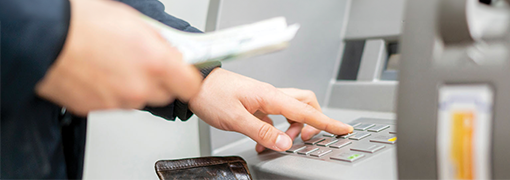How Does FDIC Insurance Work?

Several banks nationwide have been closed by the Federal Deposit Insurance Corporation (FDIC), raising concerns about the safety of their deposits.
However, as a reputable financial institution, FSB wants to assure customers that their financial safety and security is the bank's top priority.
With one of the strongest capital positions of any bank or credit union in the Eastern Iowa area, we are confident in our ability to protect our customers' assets.
In addition, our relationship-based banking business model reflects our commitment to our community, where we live, work, and worship.
As such, we are dedicated to assisting our customers and all community members in achieving financial wellness through education and guidance.
Our knowledgeable bankers are well-versed in FDIC insurance coverage and are eager to help educate any customer or community member who may have questions.
Bank failures can arise from various factors, and mismanagement of funds is a prevalent cause. Banks that engage in risky practices or fail to manage their assets and liabilities efficiently may find themselves in financial distress.
For instance, a bank that extends excessive credit to borrowers unlikely to repay their loans may jeopardize its financial position, or a bank that invests heavily in speculative investments may suffer significant losses that may prove irrecoverable.
However, FSB prioritizes the security and protection of our customer's assets, and maintaining one of the most substantial capital positions of any bank or credit union in the Eastern Iowa area is a testament to this commitment.
We focus on ensuring that your funds are secure and accessible and take pride in providing reliable financial services to our customers.
In addition to vaults, security guards, and fraud protection, a higher level of security protects your funds—the FDIC or Federal Deposit Insurance Corporation.
During the Great Depression, the FDIC was created by the Federal Banking Act of 1933. Congress wanted a mechanism to guarantee the safety of deposits in member banks.
The FDIC is an independent U.S. government agency that maintains stability and public confidence in the financial system by protecting depositors of insured banks against the loss of their deposits if a financial institution fails.
The FDIC's supervision program promotes the safety and soundness of FDIC-supervised financial institutions, protects consumer rights, and supports community investment initiatives.
FDIC insurance covers depositors' accounts at each insured bank, dollar-for-dollar, including principal and accrued interest, up to $250,000 per depositor.
Thousands of financial institutions, including Farmers State Bank, are FDIC-insured.
The FDIC covers:
Certificates of deposit
Money market accounts
Traditional checking and savings accounts
However, some items the FDIC does not cover include:
Mutual funds
Safety deposit box contents
Annuities
And other investment-related accounts
You may qualify for more than the current $250,000 in coverage, depending on your account type and ownership category.
For details, ask your banker or visit the FDIC website.
Here are some helpful resources to help answer more of your questions!

Depositing cash at an ATM is convenient, but how does it work?

Learn how mobile deposit lets you deposit checks from your phone.

When it comes to transferring money, both offer several benefits.